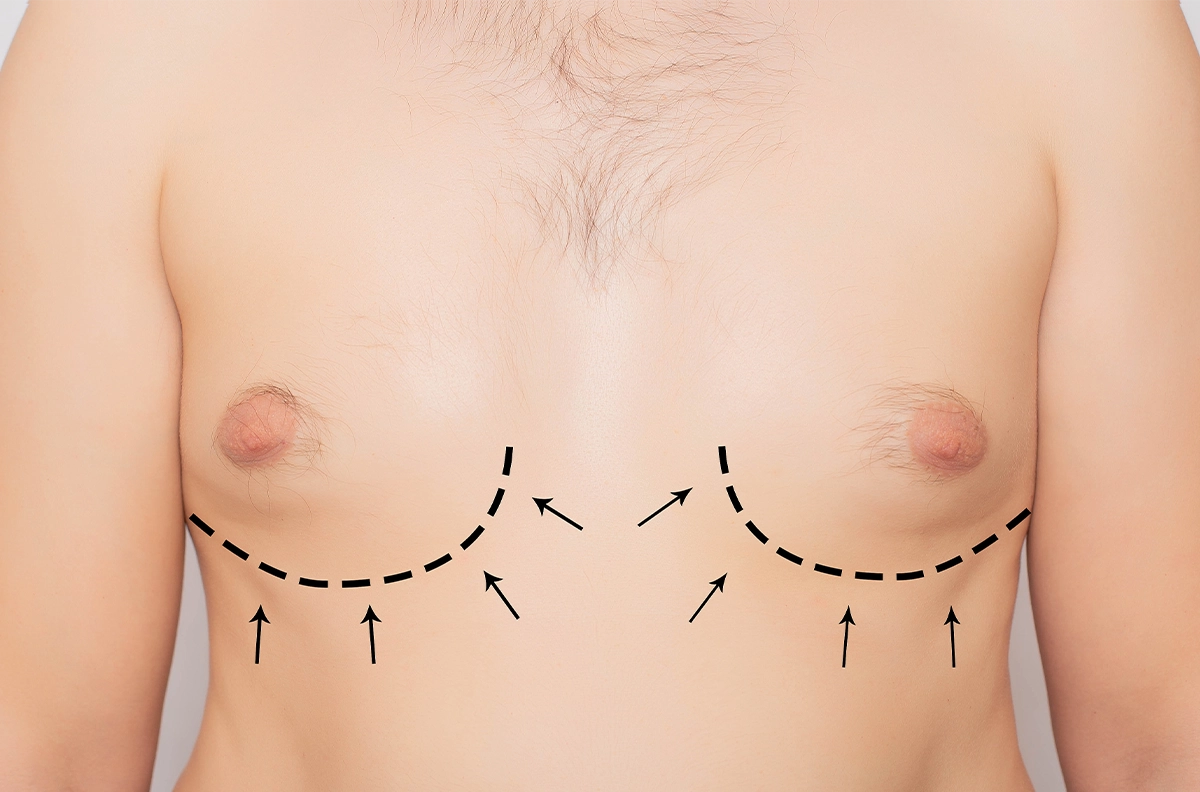Gynecomastia is defined as excess breast tissue in men. In simpler terms; We can explain it as the fact that the breast tissue in men is larger than normal. Gynecomastia , which can be seen in both young men and older men , is a problem that affects more men than you might imagine. Gynecomastia , which damages the sense of self-confidence and leads to low self-esteem, also greatly reduces the quality of social life.
How does Gynecomastia Affect a Man’s Life?
No matter how annoying an underdeveloped breast tissue is for women; Overgrown breast tissue is just as annoying for men. The dominant emotion in the negative effects of gynecomastia on social and private life is shame.
- Gynecomastia is a problem that triggers posture disorder. Men who have this problem usually prefer to slouch in order not to make the breast appearance prominent.
- Gynecomastia is a restrictive factor for clothing choices. Clothing that covers the upper body should be avoided.
- Gynecomastia causes men to avoid sea and pool activities. Upper body nudity is embarrassing.
- Gynecomastia can negatively affect emotional relationships and sexual activities for men.
- Gynecomastia , which can also be seen in adolescence , may cause alienation from social environments, especially in young men.
Gynecomastia surgery can be made by the doctor. Breast size can change along with your physical appearance. For example, it may differ visually in weight gain and loss processes. Therefore, it would not be correct to consider every difference observed in the breast area as gynecomastia . Gynecomastia can be seen in a single breast or bilaterally. We can list the typical symptoms of gynecomastia as follows:
- swelling in breast tissue
- pain in breast tissue
- Tenderness in breast tissue
- nipple discharge
If you observe one or more of these symptoms ; The first thing you should do in order not to plan a definitive diagnosis and treatment should be to consult a doctor.
What Causes Gynecomastia ?
gynecomastia can be determined according to the results of oral and physical examinations and tests. For a definitive diagnosis, you must first be examined. We can list the 3 most common reasons thought to trigger gynecomastia as follows:
- Hormonal Imbalance
Estrogen is a hormone found in both men and women. It plays a major role in the menstrual cycle of women of reproductive age. They also produce some estrogen hormone in men. However, because men suppress estrogen with high testosterone levels, their breast tissues do not develop as they do in women. Imbalance in estrogen and testosterone levels can cause gynecomastia . However, the exact cause of this imbalance is not yet known.
- Obesity
Excess weight is among the factors that trigger gynecomastia . Excess fat in the body has the potential to enlarge breast tissue.
- Senile
With aging, both weight balance and hormone balance deteriorate. As the testosterone level decreases, the body tends to become fat. These changes may bring gynecomastia to the agenda.
How Does Gynecomastia Treated?
It is possible to regain the masculine breast appearance with a very simple operation. By entrusting yourself to the experienced doctors of our medical center, you can get rid of this excess tissue that forms in the breast and causes a feminine breast appearance in a short time.
- We provide the evaporation of excess adipose tissue with an operation that takes approximately 30 minutes under local anesthesia.
- We protect the application areas by wearing small tapes after the procedure.
- You can continue your social life on the same day.
- Swelling and bruises that may occur due to the procedure may last for 3 to 4 days.
- No special wound care application such as dressing is required during the healing process.
Can Gynecomastia Be Treated With Medication?
Surgery is the most effective and permanent option in the treatment of gynecomastia . In determining the treatment method; It is important how long and why the patient has this problem, and how much the breast tissue has grown. Surgery is the most ideal option for cases where medicated treatments do not respond or are thought to be inadequate .

